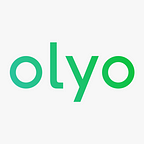Messenger Chatbots Can Lead Your Campaigns to a 98% Open Rate
Have you ever had a similar result by sending emails? It’s time to change the media.
Since Facebook opened Messenger APIs, over 100,000 chatbots have been created. Some of these have the only purpose of amusing users, while others are used by businesses to support their communication. The functions a Messenger chatbot can have for businesses are very similar to the ones of email marketing. Despite the similarities, the results that can be obtained through these two medias are very different.
In this article we’ll cover:
- Why Facebook Messenger
- Messenger bots can do the same things as emails…
- … However Messenger bots are more affective.
- Conclusions
Why Facebook Messenger
According to the 2016 E-mail Marketing Metrics Benchmark Study, the world average open rate of emails was 21.8%. This means that almost 78% of users are not interested in opening emails sent by brands. The reasons may be different, but one of the main reasons is related the high number of unwanted messages that users receive daily to their email accounts. It looks like brands are failing to attract the attention of most of their users through this medium.
Every month, Facebook Messenger is used by more than 1.2 billion users worldwide and data is growing steadily. There is therefore a real chance of being able to reach a very large number of users through this app. The 2016 E-mail Marketing Benchmark Study shows how 49% of the mail is read via mobile, which may indicate the users tendency to read communications whilst on the move. If users would have been reached by Facebook Messenger’s push notification, the opening rate would have been much higher. We personally tested and verified this statement.
It was important for us to understand the potential of the Messenger bot medium in comparison to email marketing considering that, ultimately, these two tools perform the same function: send communications to users.
First up, we decided to develop a rudimentary version of Olyo where we sent the same campaign to our users using both Messenger bot and email. The results obtained with the chatbot were extraordinary: the CTR (click-through rate) was 12 times higher than the one obtained by e-mail, which has resulted in an increase in overall campaign performances. And the opening rate was 98%.
Due to these astonishing results, we decided to create Olyo, the platform that allows brands and companies to easily and autonomously create their own Messenger bot, tailored to their needs. The potential of direct marketing on Facebook Messenger is enormous and we are confident that in the future, if used to its best, it may also take the place of email marketing.
Messenger bots can do the same things as emails…
As we said, many of the features of e-mail marketing can be replaced by Messenger bots. Below are some communication examples of this:
- thank you messages
- order confirmations
- shipping notifications
- upselling messages
- newsletter and general communications
- cart recovery
- informative articles
- customer care
- service sign-up / lead generation
…However Messenger bots are more effective.
Since emails and Messenger have the same purpose, why should Messenger be considered as the primary medium for this type of communication? The reasons are evident — because Facebook Messenger has the ability to achieve goals in a simple and effective way.
We have summarised the main reasons that led us to this conclusion:
- People tend to click more on the contents received via Messenger than on those received by emails. From our tests, we obtained an average of 98% open rate and 44% click-through rate via Facebook Messenger. Have you ever had such results with email marketing? It’s astonish, isn’t it?
- Through Messenger you have conversation history, while emails are individual so it is likely a user may not see all communication messages that have been sent. Additionally, through this widely used medium, the user may feel a sense of being part of a ‘community’ and feel like they have more of a personal connection with the brand in comparison to standard mass emails.
- Emails often end up in secondary folders such as spam (eg Gmail) and the user usually does not get push notifications, whilst with Messenger, users will always receive notification.
- On Messenger, users view brand messages between their contacts, however, through emails, brand messages are often aggregated with those of other brands. This makes the individual messages lose their effectiveness, since they are often lost among those of many others.
- Through a Messenger bot users can request information and obtain an instant answer. By email this is not possible.
- With Facebook Messenger you don’t need to set up the message screen. The content will be correctly displayed on all mobile and desktop devices.
Conclusions
The change will not take place within a few days, but we believe that in the not so distant future Messenger chatbots will become as important as email marketing; and maybe one day, they will completely replace it. If experimentation and technology upgrading continues, Facebook Messenger chatbots will be the future of brand / user communication. The changes will not only be in the platform type (from email platforms to social networks chat) but also and above all forms of communication. The fluid communication is already visible on Facebook Messenger, where more than two billion messages between users and businesses are exchanged every month. We believe that the typical vertical brand-to-user communication will gradually be replaced by a continuous exchange of relevant informationbetween the two subjects. The factor that will determine Messenger’s success on emails will be exactly the relevance of messages received by users. Brands should however avoid sending messages too frequently, to abstain from seeing a repeat in the lack of CTR of email marketing.
